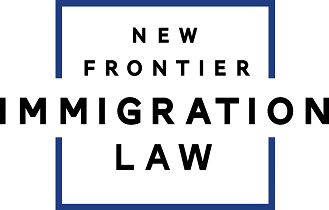
You may wonder whether there are specific fees associated with expedited requests and how this process compares to other USCIS processing options, such as premium processing. Time is often a critical factor when applying for immigration benefits. For those in urgent situations, the United States Citizenship and Immigration Services (USCIS) provides the option to request expedited processing.
USCIS expedite request fees refer to the costs associated with asking the USCIS to speed up the processing of certain forms or immigration benefit requests. While there is no direct fee for submitting an expedited request, individuals may still need to pay the standard filing fees for the underlying form or petition. It’s important to consult a Phoenix immigration lawyer to determine if your case meets the eligibility requirements for expedited processing.
USCIS Expedite Requests Explained by an Immigration Lawyer
USCIS expedite requests allow individuals to ask the U.S. Citizenship and Immigration Services to speed up the processing of their immigration benefit requests. Expedite requests can be essential for people facing urgent circumstances, such as medical emergencies or situations involving national security or public safety.
To successfully submit a USCIS expedite request, it is essential to provide adequate evidence to support your situation. A Phoenix naturalization immigration lawyer can guide you through this process, helping you understand the eligibility criteria, such as how your case relates to individual circumstances or humanitarian needs.
For a free case review with an Immigration lawyer, call
Are Expedite Requests and Premium Processing the Same?
Expedite requests and premium processing are two different options available to applicants seeking faster processing of their immigration cases. While they may seem similar, they serve distinct purposes and have different requirements.
Expedited Processing
It involves requesting faster action on an application or petition due to urgent circumstances, such as a medical emergency or a significant financial loss. Applicants need to demonstrate their individual circumstances that warrant the expedited action, and approval is not guaranteed. It’s essential to provide supporting evidence with your request to help USCIS understand your situation.
Premium Processing
This service guarantees a faster processing time for specific forms, such as Form I-129 and Form I-140. When using premium processing, applicants pay a fee, which ensures a response from USCIS within 15 calendar days. It is important to keep in mind that USCIS premium processing fees increased in 2024.
Unlike expedited processing, there is no need to show special circumstances when using premium processing; the fee alone qualifies the application for this service. Here are some key differences between expedite requests and premium processing:
Requirements
Requirements for both situations may be different. The main difference is:
- Expedited Processing. Must demonstrate urgent circumstances, such as medical emergencies or humanitarian reasons.
- Premium Processing. Available for specific forms with a standard fee; no special circumstances needed.
Processing Time
Just like with requirements, the processing times may vary depending on the type of situation:
- Expedited Processing. USCIS reviews requests but does not guarantee a specific processing time.
- Premium Processing. Guaranteed response within 15 calendar days.
Fees
Fees are also different depending on the type of request. These are the details:
- Expedited Processing. Typically, there are no additional fees, but this may depend on the situation.
- Premium Processing. Fixed fee of $2,805 for faster processing.
Understanding the differences between expedite requests and premium processing can help applicants choose the best option for their needs. Consulting with an immigration attorney may provide additional guidance in deciding which path to take, especially during challenging times.
Eligibility for a USCIS Expedite Request
USCIS determines eligibility for an expedited request based on specific criteria. While expedited requests are generally not associated with any fees, the agency will assess whether the request meets the criteria, such as:
- Humanitarian reasons. This can include medical emergencies, financial hardship, or situations that affect human welfare.
- Severe financial loss. If a delay in processing results in significant financial harm to the petitioner or beneficiary, such as in employment-related cases,
- Nonprofit organization requests. Nonprofit organizations whose mission is to further the cultural or social interests of the United States can also request expedited processing.
- Government agency needs. In certain cases, government agencies request expedited processing for cases impacting national security or public safety.
Expedite requests can also be made for students in certain categories and organizations filing Form I-129 petitions on behalf of workers. Additionally, USCIS takes into account circumstances involving a current backlog or requests from nonprofit petitioners.
If USCIS denies an expedited request, there is no appeal process. However, individuals can still pursue other options if their USCIS case is taking too long, such as premium processing, if available for the specific form.
Our immigration lawyers
USCIS Expedite Request Fees – 3 FAQs You Need to Know
Understanding USCIS expedite request fees can be essential when applying for immigration benefits. Many individuals may find themselves in situations requiring faster processing of their petitions or applications. Here are three frequently asked questions about expedite requests and their associated fees.
How Long Does It Take to Get a Response?
The response time for expedited requests can vary. Unlike premium processing, which guarantees a response within 15 calendar days, expedite requests depend on individual circumstances. USCIS reviews these requests and may approve or deny them based on urgency.
Can I Submit an Expedite Request for Any Application?
Not all applications qualify for expedited processing. Common forms that can benefit from this option include applications related to employment authorization and family petitions. Always check the specific form instructions for details on eligibility for expedited requests.
What Should I Include in My Expedite Request?
A successful expedite request typically includes the following:
- A detailed cover letter explaining the urgency of the request.
- Relevant evidence, such as medical documents or financial statements.
- The appropriate form, like Form I-129, with the original application.
- Your contact information, including your email address and correct filing address, to ensure timely communication.
Understanding these common questions about USCIS expedite request fees can help applicants make informed decisions during challenging times. Consulting with an immigration lawyer can provide additional clarity and guidance based on individual needs and circumstances.
Complete a
Free Case Evaluation
Form now
Ask Your Lawyer About USCIS Expedite Requests Today
If you believe you qualify for an expedited request due to your situation, it is important to consult with your immigration attorney. They can help assess your case and determine if an expedite request is the best course of action. They can also ensure that all documentation, such as evidence of the urgent circumstances, is properly submitted to USCIS.
In urgent or time-sensitive cases, requesting expedited service could be essential for avoiding long delays. Reach out to an experienced immigration lawyer at New Frontier to discuss your specific circumstances and explore the best way to ensure your immigration application is processed in a timely manner.






